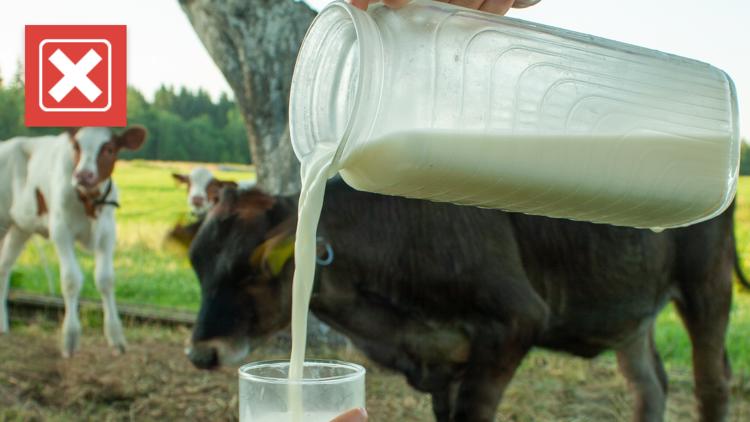Earlier this week, Georgia congresswoman Marjorie Taylor Greene posted on X an image of a jar of milk with the caption “Raw Milk does a body good. Make America Healthy Again!” But multiple people in the comments say raw milk is actually unsafe to drink.
It's a common belief online that raw milk can provide nutritious benefits. People drink raw milk thinking it can “cure lactose intolerance, treat allergies, and support gut health,” a Harvard Health Publishing article says.
Raw milk, which is not commonly sold at traditional grocery stores, has not undergone the typical treatments for killing bacteria.
Google Trends shows a spike in people searching about the dangers of raw milk.
THE QUESTION
Is raw milk safe to drink?
THE SOURCES
Karla Robinson, M.D., a family physician in Charlotte, North Carolina
A Harvard Health Publishing article
THE ANSWER
No, raw milk is not safe to drink.
WHAT WE FOUND
Drinking raw milk is unsafe and can lead to foodborne illness, the Food and Drug Administration (FDA) says. Its sale is prohibited in multiple states.
“Raw milk in its state with all of the natural kind of bacteria maybe found in a cow's digestive system can cause illnesses like E. coli and shigella," Karla Robinson, M.D., told VERIFY partner station WCNC.
These illnesses can lead to symptoms ranging from diarrhea and vomiting to Guillain-Barré syndrome or hemolytic uremic syndrome, which can lead to “paralysis, kidney failure, stroke, or even death,” the Centers for Disease Control and Prevention (CDC) explains.
Between 1998 and 2009, 1,837 illnesses, 195 hospitalizations and two deaths were attributed to consuming raw milk, the Washington State Department of Health says.
In order to prohibit foodborne illness, milk is pasteurized. This process involves heating raw milk to a temperature that will kill harmful bacteria, the FDA says.
The sale of unpasteurized milk is banned across state lines, the CDC explains. But many individual states also have laws prohibiting or restricting the sale of raw milk locally.
“While pasteurization has helped provide safe, nutrient-rich milk and cheese for over 120 years, some people continue to believe that pasteurization harms milk and that raw milk is a safe, healthier alternative,” the FDA says.
None of the claims about raw milk curing lactose intolerance, treating allergies and improving gut health are true, a Harvard Health Publishing article says.
The pasteurization process does not cause lactose intolerance or allergic reactions, and it does not diminish the nutritional value of milk, the administration adds.



